Did you know that if we could harvest only 1 hour of solar energy that falls on earth this would be sufficient to provide enough power for everyone on the planet for A WHOLE YEAR?
No doubt, solar power is the cleanest and most efficient source of energy on earth, but should I opt for solar? Is it still a good investment in 2021?
Well, although many people would tell you how amazing solar power is, solar energy is a big investment and before making such a decision, you need to carefully consider the advantages and disadvantages.
Don’t get me wrong, solar is a really good investment. However, it’s not made for everyone, as in some cases, the disadvantages of solar energy will outweigh the advantages.
Therefore, in this article, we will go through all the pros and cons of solar energy in 2021 to help you make up your mind.
Types Of Solar Panel Installations
Before getting into the advantages and disadvantages of solar energy, first, let’s take a quick look at the different types of solar PV and storage systems.
Mainly, there are 3 types of solar PV systems:
1. Grid Tied Solar System
Also known as on-grid solar, grid-tie solar, and grid-feed solar.
This type is mainly used by customers who are already on the grid and want to lower their energy bills by adding a more renewable energy source to their houses.
What makes this type perfect is it’s the cheapest way to qualify for state and federal solar incentives, which will help to pay for a big portion of your system’s initial cost.
Also, with this type of solar installation, you don’t need to invest in big batteries, you can use the grid as a free battery to store your energy.
The only downside of this solar system installation type is due to safety reasons, each system must be installed with rapid shutdown components to prevent the electricity from back-feeding into the grid in order to protect workers on the electric lines.
In other words, if the grid goes down for any period of time, your system will go down too and you won’t be able to use or store energy until the grid is back.
2. Grid Tied Solar System with a Back-up Battery
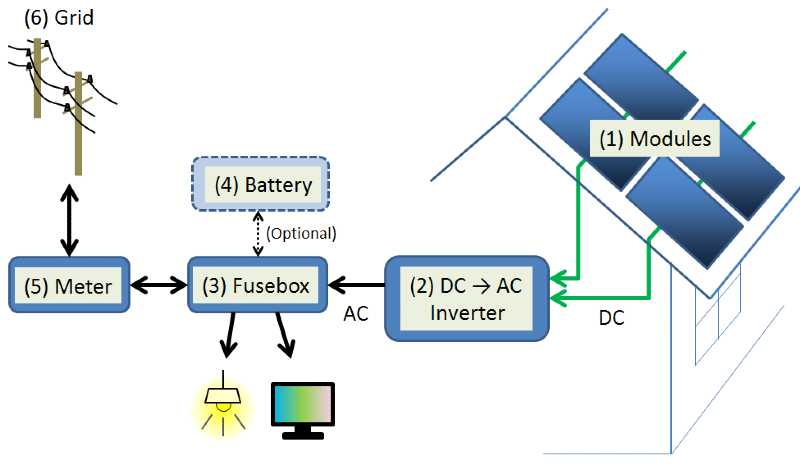
A Grid-hybrid system is simply a grid-tied system with an emergency backup battery.
This backup battery will allow you to use and store your solar energy even if the grid is down making it perfect for people who are prone to power outages.
So, if you live in an area that suffers from power outages and you want to qualify for solar incentives without investing in big batteries, then this type is specially designed for you.
The disadvantages of this solar energy installation type are; it costs a little more, and it’s less efficient than the basic grid-tied system.
3. Off Grid Solar Systems
Sometimes, you can’t easily connect to the grid because of your geographical location, high cost, or any other ridiculous reason.
However, you can easily be energy sufficient by installing an off-grid solar system to your home.
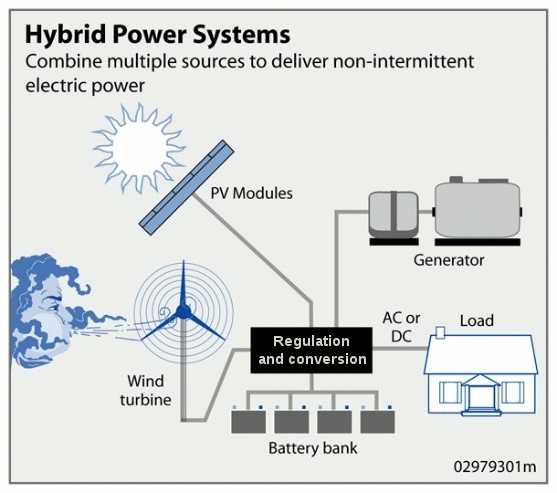
In this type, you don’t need the grid to store energy, instead, you use large batteries to store energy during the day and use it when needed.
Because this is your only source of energy, most off-grid systems have a combination of multiple charging sources such as; solar panels, wind turbines, in addition to electric generators for emergencies.
Although this type of solar installation can be a bit pricey, you don’t need to start big.
You can simply start with a small budget-friendly system and increase its capacity over time.
Also, one of the many advantages of off-grid solar energy is that you won’t get any energy bills. Moreover, you will qualify for plenty of solar incentives that will help to cover a big portion of the initial installation cost.
On the other hand, there are a few disadvantages of the off-grid solar energy installation.
First, the efficiency of your system highly depends on the weather condition of your area. For example, a solar system in Florida or Texas is way more effective than the same system in North Dakota where there is less intense sunlight.
Secondly, It tends to cost more than the hybrid and basic systems.
Finally, you won’t be eligible for some state incentives such as Net Metering.
The Advantages of Solar Energy
1. Helps the Environment
Since the invention of the steam engine in 1698 and the world is all crazy about fossil fuels such as coal, oil, and gas.
Foolishly, our factories started burning fossil fuels releasing huge amounts of carbon dioxide into the atmosphere, which caused numerous environmental issues including but not limited to:
- Rising levels of air and water pollution
- Ozone hole
- Global warming
- Numerous health issues
Don’t get me wrong, the Industrial revolution is awesome, without it we would have no electricity, cars, or even the mobile/laptop you are reading this article from.
However, all the luxury we live in now came with a cost -a big one-, which is global warming.
Global warming is a serious matter that can affect life on earth. Oh, sorry, let me say it right. GLOBAL WARMING WILL GREATLY AFFECT LIFE ON EARTH IF NOT TREATED RIGHT AWAY.
The average American home produces around 7.5 tons of carbon dioxide equivalents per year and by only switching to solar energy, you can decrease your emissions by more than 80%.
The damage we have done to our plant is irreversible. However, according to the Anthropocene magazine, if we switched to clean sources of energy such as Solar Energy, we will have a 65% chance of keeping global warming below 1.5 degrees, which is absolutely amazing.
Related article: How to reduce your carbon dioxide footprint
2. It’s an Investment, a Very Good One Indeed
Unlike paying for your electricity bills every month, solar energy is an investment.
In this section, we will go through how investing in solar panels won’t only save you money, but actually make you money in both the short and long-term.
1. Reduces your Electricity Bills
By using solar energy, you generate your own electricity, and you become less reliant on public utility.
In order to know how this can save you tons of money, first, you need to understand your power bill.
You don’t just get billed at one average rate, in fact, power companies charge more for power during peak hours, and they charge less at night when the demand is at its lowest.
In other words, during peak hours, power companies will charge you way more per kWh; x15 in summer months and x7 in winter months.
Now it all makes sense; you can use small solar panels to power your home during peak hours, which highly reduces your electricity bills and saves you a lot of money.
In many states, by only switching to solar panels during peak hours, homeowners can save around $1000 every year.
Moreover, recent studies showed that it can save you between $10,000 to $30,000 over a twenty-year period, depending on your location, electricity usage, and home size.
For more information on how much you can save using solar panels, check this solar panel electricity savings calculator.
Further, solar energy helps you to eliminate costs, which is much better than revenue growth.
Let’s compare that to revenue growth, where only a tiny percentage drops to your bottom line.
For example, a $10k growth with a 10% margin will only add $1,000 to your bottom line.
On the other hand, $10k of savings from solar will add all the $10k to your bottom line.
For more tips on how to save money, check this article on how to reduce your electricity bill.
2. Your System Will Pay For Itself Within 8 Years
In addition to the huge electricity bill savings, installing solar panels can be a source of passive income as well.
More than 38 states have performance-based incentives such as Solar Renewable Energy Credits (SRECs) and net metering (we will dive into different incentives types in the next sections).
These incentives allow you to sell your excess generated power to utilities during peak hours -when rates at its highest- and earn hundreds of dollars a year, depending on how much energy you generate and where you live.
Therefore, if you live in a state where either of these incentives applies, you can expect both immediate and long-term profits from your solar investment.
Further, the money you earn from these incentives, combined with your electric bill savings, will pay for the solar panels’ initial cost in an average of 7.6 years, depending on the size of the system, the amount of energy your produce, and the available incentives.
After that, your solar panels will continue to generate free electricity for the rest of the system life (25-35 years).
In other words, you get about 20 years of free energy while helping the environment at the same time!
3. Increase the Value of your Home
One of the main benefits of solar energy is it doesn’t only reduce electricity bills, but also increases your overall property value.
Recent studies showed that installing solar panels can increase your property value by an average of 4.1%. That’s a boost of $8200 on a $200k property!
4. Combat Rising Electricity Costs
One thing we know for real is that electricity keeps getting more and more expensive every year.
While the cost of solar installation has decreased by more than 70%, the cost of electricity has increased by 15% in the past decade.
In other words, in the past decade only, the cost of kWh has increased steadily with an average of $0.2 per year.
While rates vary from region to region, energy specialists expect electricity prices to keep going up in the future.
On the other hand, a solar upgrade to your home will protect you from any future increases in electricity costs because you are producing your own electricity.
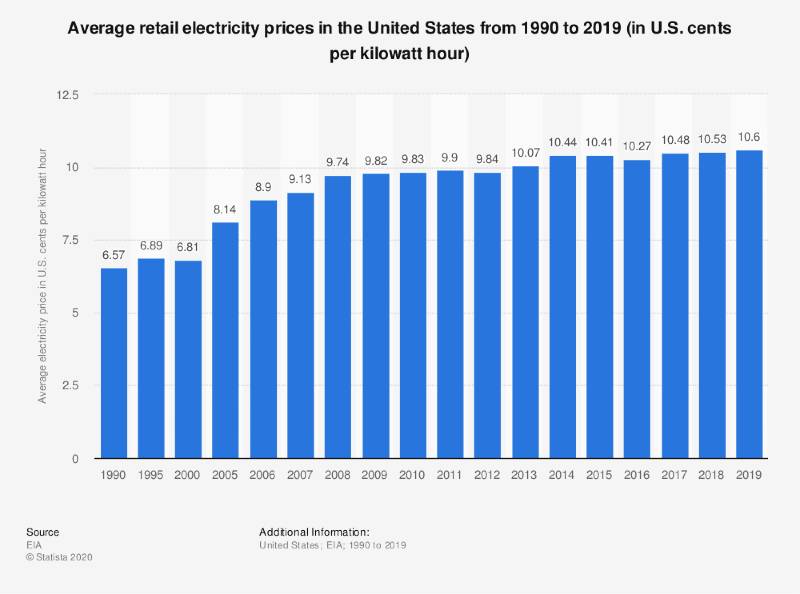
Further, the rising electricity costs trend will actually save you more money if you have solar.
How is this possible?
Well, the answer is pretty simple; NET METERING.
Let’s assume your utility charges 10 cents per kWh. This means with net metering, you can sell the electricity your solar system produces for 10 cents per kWh.
Now, what would happen if the utility raises its electricity price to 12 cents per kWh?
Yes, you are absolutely right, you will be able to sell your energy for 12 cents per kWh too.
So solar installation won’t only protect you from rising electricity prices, but also save you more money, What an investment!
3. The Government Got your Back
The government offers plenty of cost-saving incentives to help you to quickly recover a large portion of your installation cost in year one, so you can keep investing with your capital.
Here are some of the incentives offered by the government:
- Tax Credits: It allows you to receive 26% of your system cost back on your owed federal taxes in year one
Note: Starting from 2021 it will drop down to 22% - Grants: Grants like the USDA REAP can help fund your solar energy project by covering up to 25% of your total solar system installation cost
- Accelerated Depreciation: It allows businesses to deduct the installation cost over 5 years by reducing tax liabilities and accelerating the return on your solar investment
For more information, check this database on solar energy policies and incentives available in your state.
4. No Health Risks
Power lines produce micromagnetic fields (EMFs) and it’s completely fine in small doses. However, living near power lines means that you will be exposed to higher doses of EMFs.
Studies showed that high exposure to EMFs can lead to numerous health effects such as brain cancer, breast cancer, cardiovascular diseases (CVDs), reproductive and developmental disorders, leukemia in children, and many more.
Although it’s most likely that you are not exposed to high doses of radiation, it’s better to be on the safe side.
5. Durable
Although those glass panels seem so fragile and every time you look at them on the roofs, you picture shattered glass and huge repair bills. They are really not fragile at all.
In fact, solar panels are protected under shatter-proof tempered glass with a flexible substrate protecting cells, making them extremely durable.
Moreover, the mounting technology has evolved over the past few years.
As a result, now all solar panels are engineered to withstand major storms that even hail storms will hardly cause anything more than minor damage.
Manufacturers will also customize your solar panels depending on where you live and its climate condition.
For example, if you live in Florida or Texas, manufacturers will design and test your panels to withstand 140 mph winds, which can survive a category 5 hurricane (faster than 136 mph).
Further, most panels come with 25-30 years warranty, and inverters come with up to 25 years warranty, so even if something happens, all you need to do is sit back, give a call to your manufacturer, and they will fix it for free.
6. Require Little to no Maintenance
When it comes to maintenance solar panels are the best.
They require no wire or cords to be connected, so you can install your solar system virtually anywhere; in a field, building, or even a remote area.
Also, they have no moving parts, which makes them less likely to get damaged, thereby, less maintenance required.
In order to maintain your solar panels, all you need to do is to clean the panels from snow, dirt, and grain a few times a year in addition to occasional maintenance of the cables.
Further, new technologies are entering the market that allows you to monitor the performance of your solar system using your phone, which is absolutely amazing.
7. Reduce Dependence on Foreign Fuels
Did you know that the US spends more than $81 billion a year to protect global oil supplies?
Having a solar system allows you to generate your own electricity, in other words, you will achieve electricity independence, and you will no longer depend on the power companies and utilities.
Because you are electricity independent, utilities will no longer need to generate electricity for you, and as a result, they will need to produce less electricity, which will lead to less fossil fuel dependency.
Now, imagine every home in the United States is electricity independent. How would this affect our economy?
The answer is; we wouldn’t have to rely as much on other countries to get oil, gas, coal, or any other sources of fossil fuel and we will save tons of money for education and health.
Moreover, it will help the US to reduce the overall greenhouse gas emissions, which also help the environment to recover and combat global warming.
8. You will Live Off Grid
Our power grid is old, most of the lines have been there for about 25 years, and in some areas, those lines can be older than 40 years.
What I am trying to say is our power grid isn’t very efficient, and as you probably experienced yourself, it doesn’t take a superstorm to knock out the electricity.
One of the advantages of having your private solar system means that you generate your own energy.
It doesn’t matter if a lightning strike took out the power poles, heavy snow brought down the power lines, and most importantly, you will no longer suffer from the annoying brownouts in summer.
The solar panels on the top of your roof will protect you from these elements and allow you to produce your own power no matter what.
9. Create More Jobs
The Fossil fuel industry is mainly automated. In other words, they use closed system machines to operate on their own.
On the other hand, the renewable energy industry is more labor-intensive, which generates thousands of jobs for solar installations, maintenance, manufacturing, sales, and many more.
According to the Union Of Concerned Scientists, by 2025, there would be more than 200,000 employees in the renewable energy industry, which in turn helps the economy.
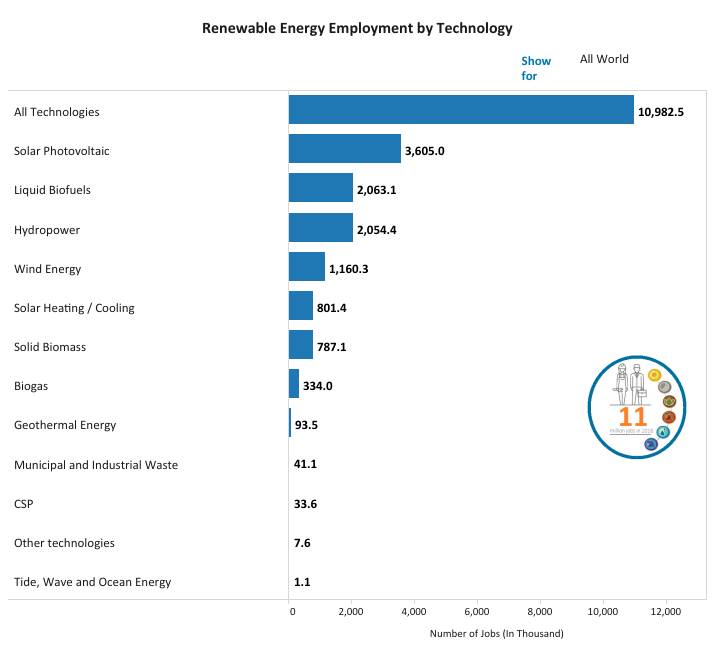
10. The costs are Fallen
All you need to do is to install your panels. Don’t get me wrong. It can be pretty expensive to build the facility. However, the operating cost is very low as the FUEL IS FREE and replenishing.
Furthermore, more technologies have been invented, and lately, the costs have greatly declined, and it’s expected to decline even more in the future.
For instance, the average cost to install solar panels has dropped by more than 60% between 2008 & 2020.
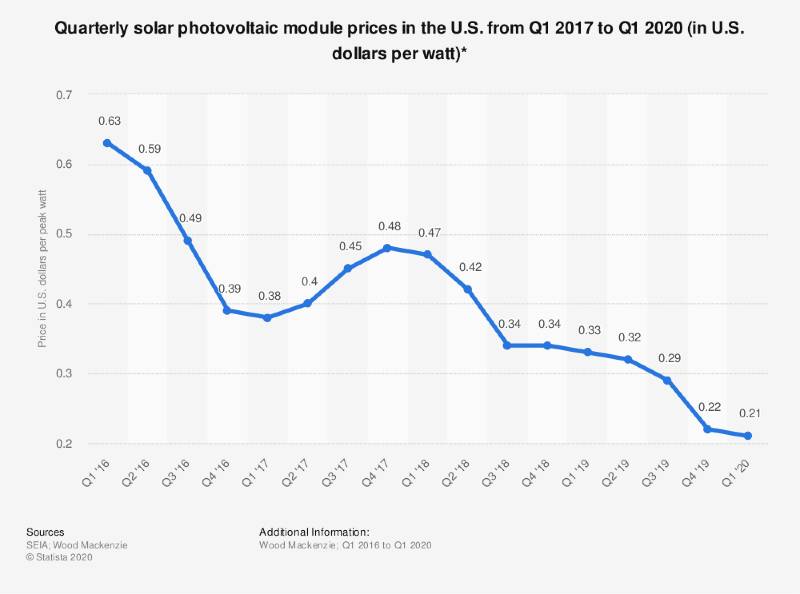
11. Numerous Applications
You don’t have to buy a whole solar system, you can start small with one of the many solar powered products including but not limited to:
- Portable solar panels
- Solar lights
- Solar chargers
- Solar air conditioners
- Solar fans
- Solar kettles
- Solar heaters
- Solar pumps
Also, the new (PV) glass technologies are entering the market very soon.
In case you don’t know, the PV glass is a transparent solar panel that looks exactly like ordinary glass, and it can be used to power your home, office, car, or even your smartphone.
So, in the future, even your windows will help to power your home.
The Disadvantages of Solar Energy
1. High Initial Cost
Unfortunately, due to the lack of material and technology, solar panels aren’t being mass-produced.
For this reason, the upfront price of solar panels can be quite expensive.
For instance, the national average cost of a 6kW solar installation in the united state is $18,000 – $20,000 depending on the size of your system, the incentives that you qualify for, and of course the state you live in.
For more information on installation cost per state, check this article on how much solar panels cost in 2021.
Although the average payback time for a solar system nowadays can be around 8 years, not everyone has the cash to make such an investment.
Therefore, in order to overcome the high initial price, the state provides you with plenty of financing options to help you with your investment such as loans, tax credit, accelerated depreciation, PACE financing, leases, and many more.
For more information about solar financing options and how they work, check this amazing video:
2. Long Term Investment
As mentioned before, solar installation is a long term investment that takes around 8 years to reach the break-even point, which can be a problem if you are planning to move soon.
Yes, a solar installation will increase the value of your home.
However, this increment won’t cover 100% of the initial installation cost. It’s just like buying a brand new car and selling it the very next day.
Further, if you have a solar lease or a PPA, you will need the new owner to take over your agreement, which can be a really annoying conversation.
Luckily, this solar energy disadvantage can be avoided as long as you plan to buy your system with cash or loan, as you can move your panels to your new property.
Note: Removing your panels from your old property can be pretty expensive and can cause damage to both your old home and panels.
Related article: How long does it take for solar panels to pay for themselves
3. Solar Isn’t Always Optimal
The main advantage of installing solar panels is that it will reduce your electricity bills and save you tons of money each month.
But what if your electricity bills are already low?
Yes, you are right, your investment won’t save you a lot of money and the system will take much longer to pay back for itself.
So in conclusion, buying a solar system isn’t a very good investment if you live in a state with low electricity rates like Louisiana, Texas, or Oklahoma.
For more information on how much will you save with solar, check this Solar Savings by ZIP Code Calculator.
4. Depends on the Weather
One of the main disadvantages of solar systems is it needs the sun to be able to generate power -It’s called “solar panel” for a reason-.
So at night, you won’t be able to generate electricity.
Further, the intensity of the sun varies depending on the weather, your location, the time of the year, and the time of the day.
For instance, during winter months, the day is shorter.
In other words, the night is longer than the day. Thereby, your system will get less sun exposure, which means that your solar panels will generate less electricity.
Also, environmental factors such as clouds, fog, rain, and snow can have a significant effect on the amount of electricity your system produces.
Luckily, you can counter most of these solar energy cons by using large battery tanks to store the excess electricity during sunny days and use it at night or when needed.
Don’t worry, there are plenty of budget-friendly battery solutions from reputable companies such as; Tesla, Sonnen, LG, and BYD.
5. It Has Some Level of Environmental Impact
Although solar energy is clean and generates no global warming emissions, there are still emissions associated with the stages of the solar life cycle such as transportation, installation, maintenance, and disposal.
For example, the manufacturing of solar panels isn’t completely pollution-free.
In fact, some toxic materials and chemicals such as Lead, Gallium Arsenide, Sulfur Hexafluoride are used to make solar panels and if these materials aren’t disposed of carefully, it could cause serious environmental and public health threat.
Don’t worry, these toxins are used inside plants where strict environmental controls supervise the manufacturing process, and none of it enters our environment.
Further, one of the major cons of solar energy is that it generates a huge amount of waste, which isn’t easy to recycle or dispose.
Note: Although solar energy production creates some sort of environmental impact, it’s nothing compared to fossil fuels.
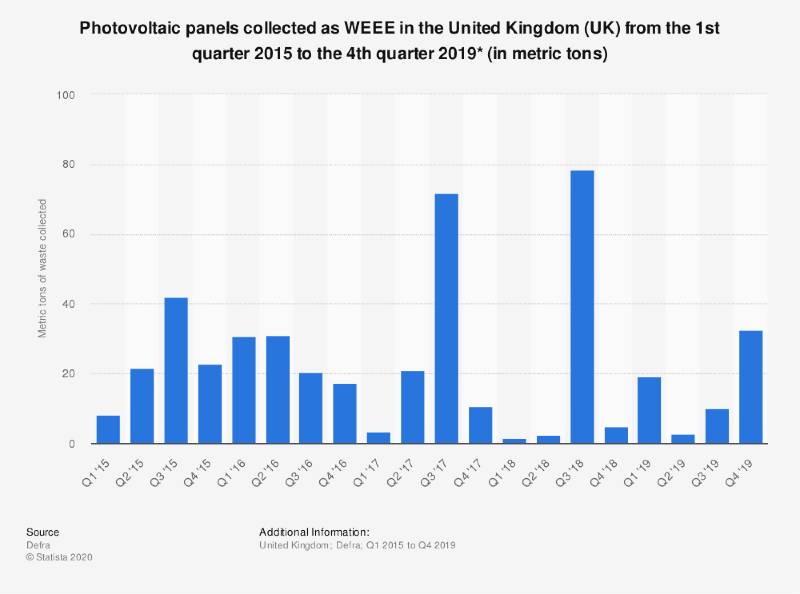
6. Not Suitable for Every Type of Roof
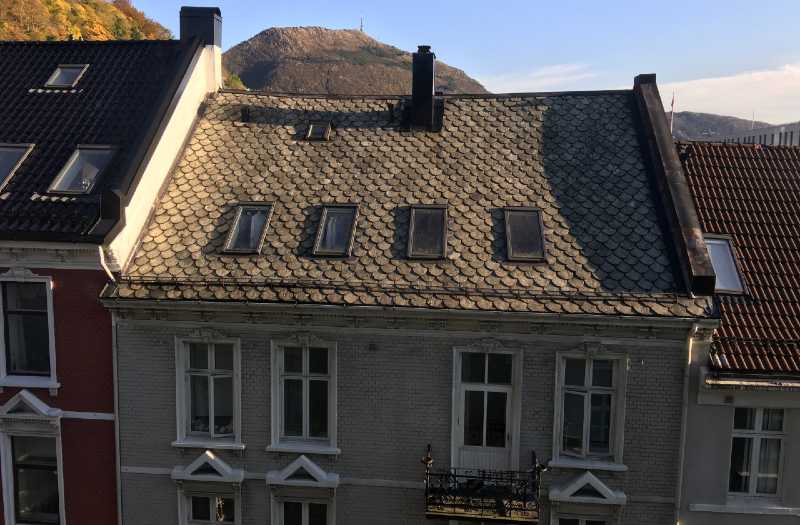
To understand how solar panels aren’t suitable for every roof, first, you need to understand how solar panels are installed.
To install a rooftop solar system:
- You connect a mounting system (racking system) to your roof
- You connect your solar panels to the mounting system
Here comes the problem, some home roofs, especially in older buildings are made of materials like Slate or Cedar tiles that can make the installation process much harder.
Also, some homes have rooftop additions such as skylights and roof decks, which makes the job of the solar installer more difficult and can cost you more money.
Luckily, this isn’t a big solar energy disadvantage. In fact, there are plenty of options instead of rooftop solar installation such as ground-mounted solar systems.
7. Not Space Efficient
Solar panels are a large space commitment and the more energy you want the bigger the system will be.
If you own your home, then this won’t be a problem. You can install your panels on your roof or even have a ground-mounted solar system in your yard.
On the other hand, if you live in an apartment or in the city with limited roof space, then opting for a solar system, won’t be a good investment -at least until the PV glass hits the market-.
Luckily, if you live in an apartment you can still get solar by buying a share in a community solar garden.
8. Not Very Aesthetic
To be honest, solar panels aren’t the best looking decoration for your home.
The placement of the panels, the type of panels used, and the quality of installation, all these factors can make your solar system look unattractive.
Luckily, there are a few things you can do to keep your home or property looking good such as; choosing the perfect frame color.
9. Overwhelming Process
Needless to say, solar is one of the fastest-growing markets nowadays and it’s expected to reach $223.3 billion by 2026.
This is such great news as it means there will be a lot of competition, which will lead to more investment in the solar industry, more research, and of course lower prices.
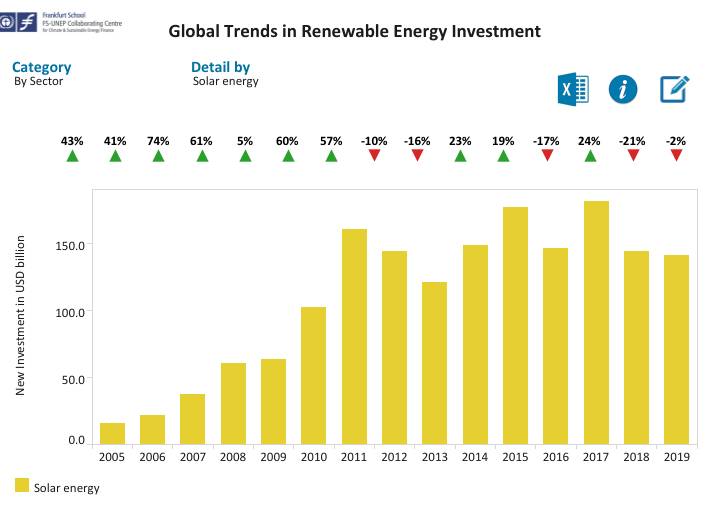
However, this can be one of the solar energy disadvantages, especially for customers.
This is because with such competition it can be really hard to choose the best solar installer and the process of comparing quotes can be really overwhelming.
Fortunately, there are plenty of online platforms that will allow you to compare solar quotes from top installers in your area.
Here is a quick overview of the best solar quotes websites in the world:
1. Best websites to compare solar quotes in the US:
Best websites to compare solar quotes in the UK:
Best websites to compare solar quotes in Australia:
What are the Advantages and Disadvantages of Solar Power? [Solar Energy Pros and Cons Cheat Sheet]
| Advantages of Solar Energy | Disadvantages of Solar Energy | |
|---|---|---|
| 1. | Helps the Environment | High Initial Cost |
| 2. | Reduces your Electricity Bills | Long Term Investment |
| 3. | Your System Will Pay for Itself within 8 Years | Depends on the Weather and Geographical Location |
| 4. | Increases the Value of your Home | It has some Level of Environmental Impact |
| 5. | Protects you from the Rising Electricity Costs | Can’t be Mounted on Every Roof |
| 6. | The Government offers plenty of Incentives to Support you | Require a lot of Space |
| 7. | Durable and Require Little to no Maintenance | Comparing Quotes can be Really Overwhelming |
| 8. | You will Live Off-Grid | |
| 9. | Creates More Jobs and Increase the Economic Growth | |
| 10. | Has Numerous Applications |
So, Should I Invest in Solar?
The short answer is YES.
Solar energy is a clean, low-maintenance source of power that won’t only help the environment to recover, but also a great passive investment that can save you thousands of dollars.
Although solar energy has some disadvantages, the pros definitely outweigh the cons.
The solar industry is really thriving. With tons of money invested and more research is done. Most experts predict that by the year 2050, at least 50% of the world’s energy needs will be covered by renewable sources, with solar power at its forefront.
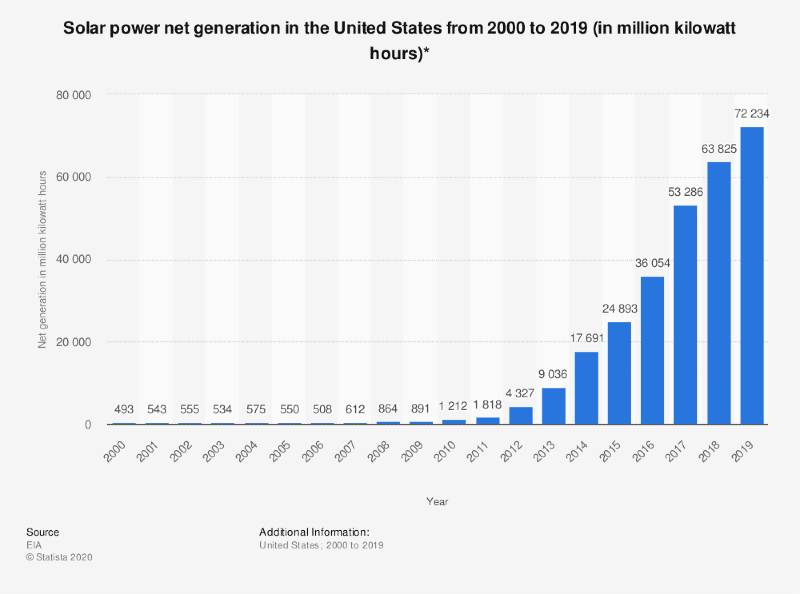
So for now and into the future, solar energy will offer us many more Pros than Cons.
Last Words
As promised, in this article, we provided you with more than 20 advantages and disadvantages of solar energy in 2021.
In the end, we really hope you enjoyed this guide, and we helped you even a little to make up your mind.
Did you find this article helpful? Do you know someone who would enjoy this article?
If so, please share this article with your friends and let us know your thoughts in the comment section below.

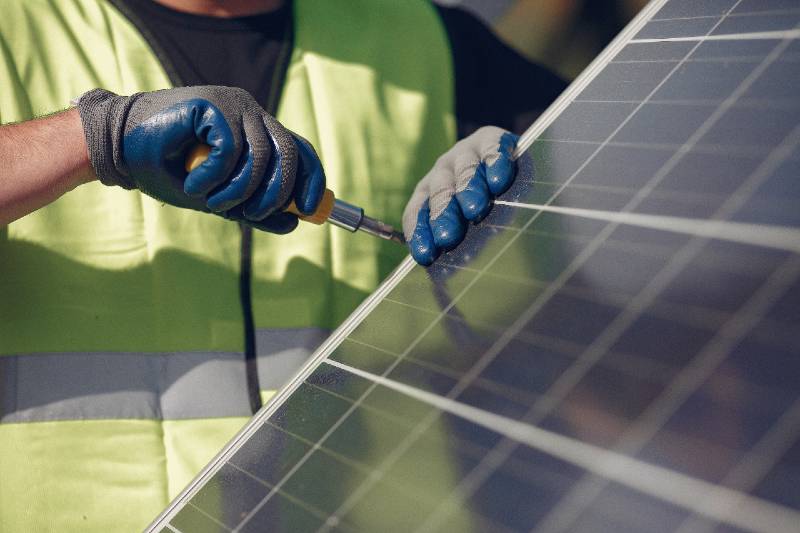
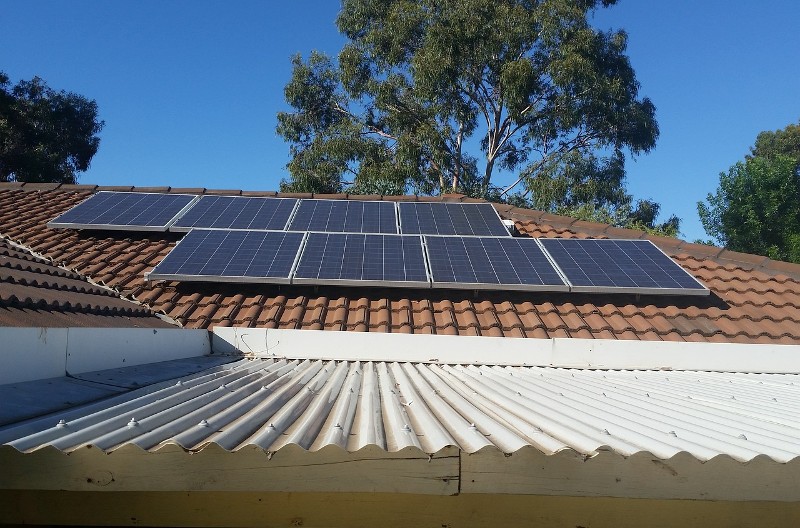
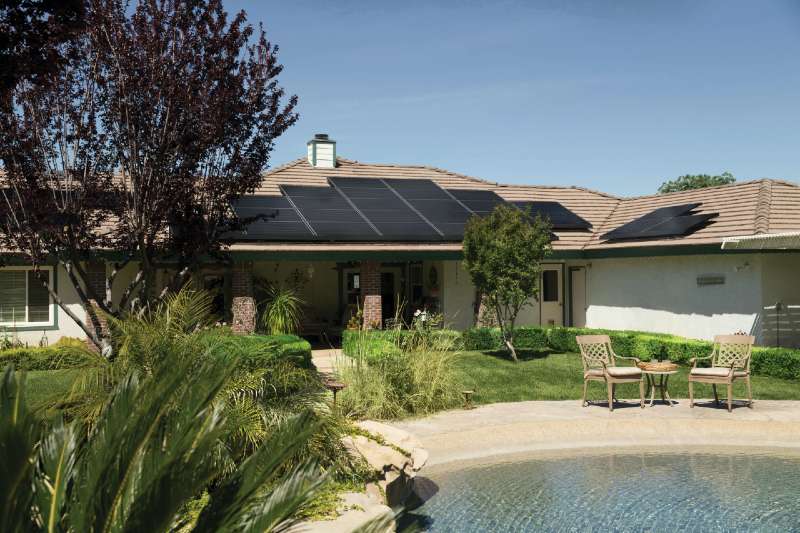
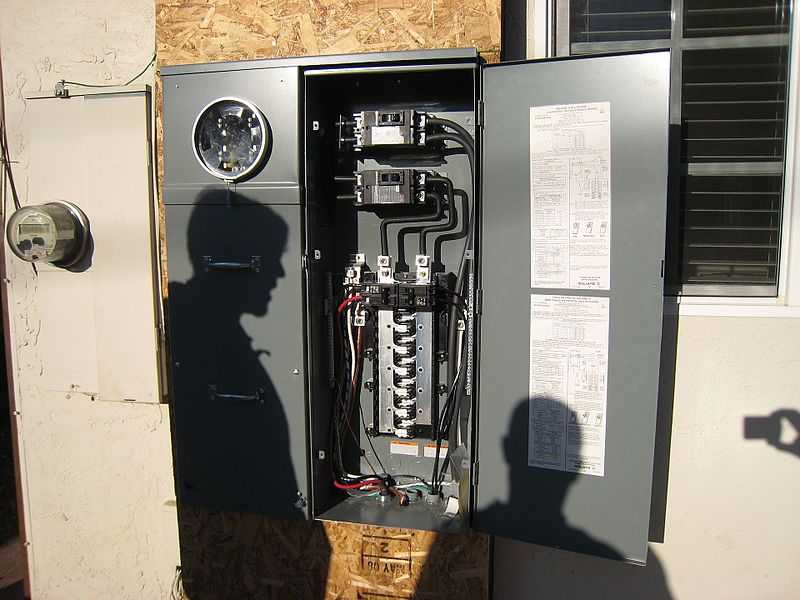

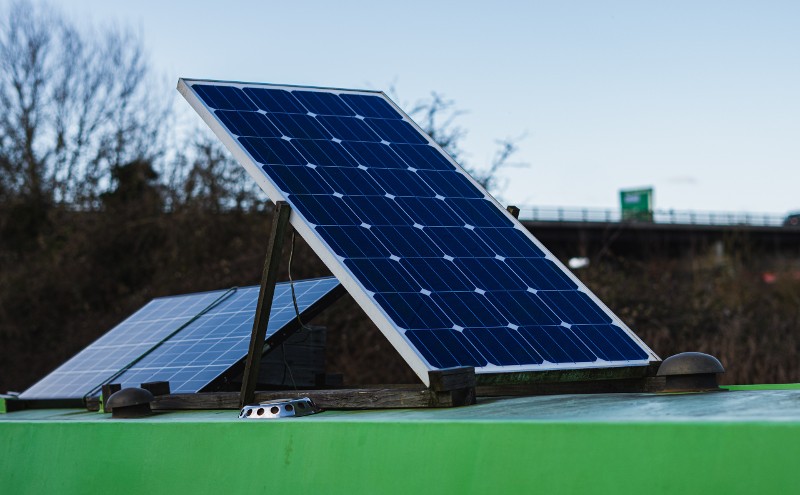
WOW! What a thorough post! I wrote on a similar topic, but your post blows mine out of the water!
I have to disagree on the aesthetics, I think solar panels add a lot of visual interest to a home. I especially like the black on black solar panels.
I totally agree with you, there are plenty of good looking solar panels out there -especially the black on black ones hahaha-.
Thanks for your input <3